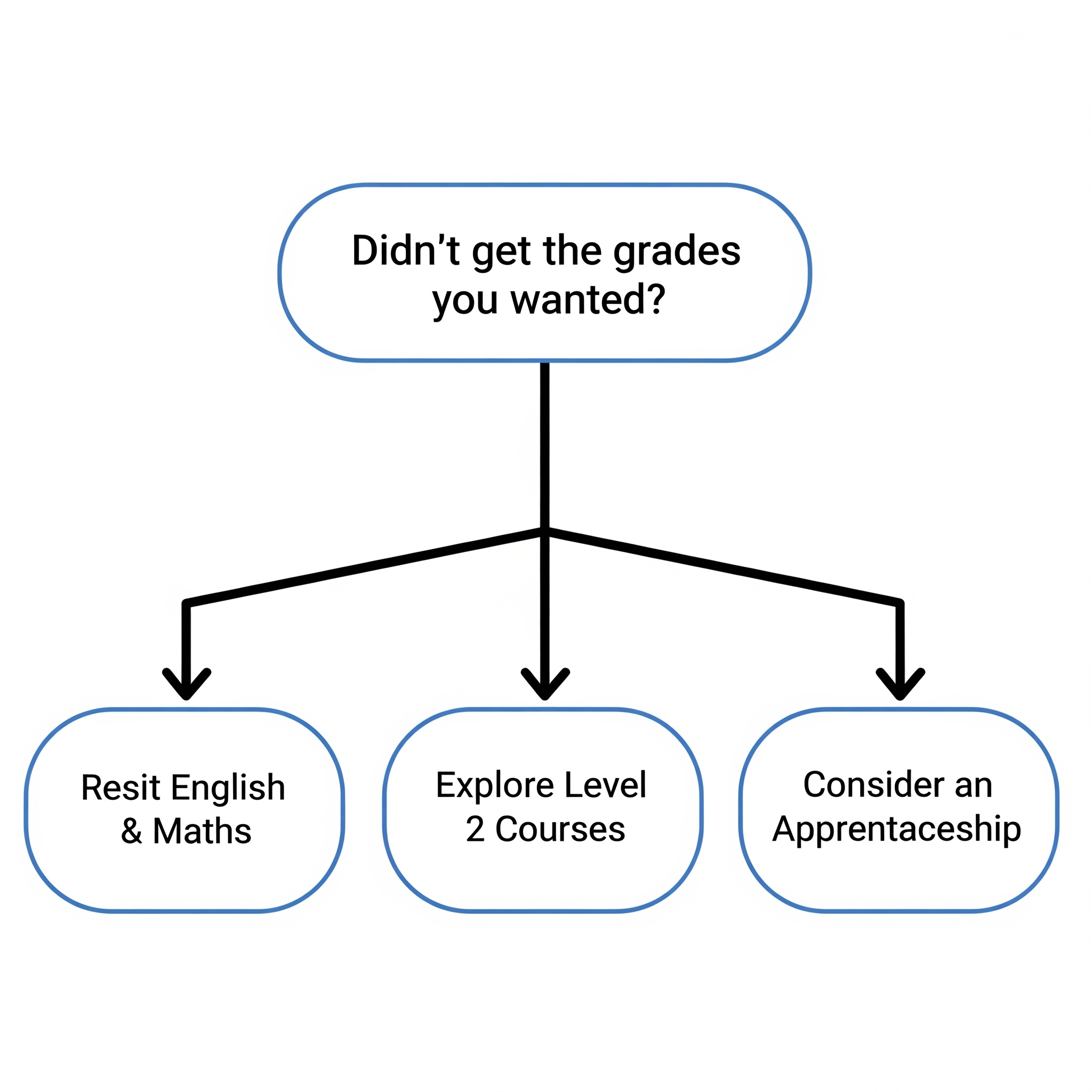GCSEs Explained: Subjects, Grading, and Exams
Welcome to your complete guide to GCSEs! If you're a student in Year 10 or 11, a parent supporting them, or someone from outside the UK trying to understand the education system, you've come to the right place. GCSEs are a crucial milestone in a young person's life, and getting to grips with them is the first step towards success.

General Certificates of Secondary Education (GCSEs) are qualifications taken by most students in England, Wales, and Northern Ireland at the end of Key Stage 4 (usually at age 16). They are the gateway to further education, such as A-Levels or BTECs, and can be a key factor for future career opportunities. Think of them as the foundation upon which your future learning and career are built. 🏛️
What Are GCSEs?
GCSEs are subject-specific qualifications that mark the end of compulsory secondary education. They are designed to provide a broad base of knowledge across several subjects, helping you develop key skills before you specialise in college, sixth form, or an apprenticeship
Compulsory vs. Optional Subjects
Every student must study a set of compulsory (or core) subjects. Alongside these, you get to choose several optional subjects based on your interests and future ambitions. This mix ensures you get a well-rounded education while also being able to pursue your passions.
How many GCSE subjects do you take?
Most students in the UK typically take between 9 and 10 GCSEs. However, this number can vary depending on the school and the student's academic path. The standard combination includes the core subjects plus 3 or 4 optional choices.
GCSE Subjects
While schools have some flexibility, the core curriculum is quite consistent across the country.
Compulsory Subjects
You can expect to study the following subjects:
📝 English: Usually split into two GCSEs: English Language and English Literature.
🧮 Maths: A single, crucial GCSE for everyone.
🧪 Science: Most students take 'Combined Science', which leads to two GCSE grades. Alternatively, some students may take 'Triple Science' (also known as Separate Sciences), studying Biology, Chemistry, and Physics as three individual GCSEs
Schools may also require you to take subjects like Religious Studies, a modern foreign language, or PE (though PE is often not a full GCSE qualification unless chosen as an option).
Popular Optional Subjects
This is where you can tailor your studies to what you enjoy! Popular options include:
🌍 Humanities: History, Geography, Religious Studies
📝 Languages: French, Spanish, German
🎨 Creative Arts: Art and Design, Music, Drama, Photography
🧪 Technical/Vocational: Business Studies, Design and Technology, Computer Science, Food Preparation and Nutrition
The optional subjects offered can vary significantly from one school to another, so always check your school's options booklet.
GCSE Grading System Explained UK
In 2017, the GCSE grading system in England was updated to a numerical scale from 9 to 1. This was designed to better differentiate between the highest-achieving students.
The 9–1 System vs. the Old A*–G System
Here’s a quick comparison to help you understand the GCSE grading system explained UK:
Grade 9: The highest grade, awarded to the very top-performing students (higher than the old A*).
Grade 8: Between an A* and A.
Grade 7: Equivalent to an A.
Grade 6: Equivalent to a B.
Grade 5: Considered a 'strong pass' and equivalent to a high C or low B. This is often the minimum grade required by top colleges and universities for certain subjects.
Grade 4: Considered a 'standard pass' and equivalent to a C. This is the minimum grade required to pass.
Grade 3: Equivalent to a D.
Grade 2: Equivalent to an E.
Grade 1: Equivalent to a G.
U: Ungraded (meaning the student did not achieve the minimum required standard for a Grade 1).
A grade 4 or above is generally considered a pass. For English and Maths, achieving a grade 4 is particularly important, as many post-16 courses and employers require it.
GCSE Exams and Assessments
The majority of your GCSE grade comes from final exams.
GCSE Exam Timetable UK

The main exam season takes place every year in May and June. The specific GCSE exam timetable UK is set by the exam boards (like AQA, OCR, and Edexcel) and released well in advance. Your school will provide you with your personal timetable, detailing the dates, times, and locations of your exams.
Coursework and Other Assessments
While most subjects are now assessed primarily through final exams, some still include other forms of assessment. These can include:
Coursework (Non-Exam Assessment - NEA): For subjects like Art, Design and Technology, or Drama, a significant portion of the final grade comes from practical projects completed over time.
Practicals: For science subjects, you'll need to complete a series of required practical experiments. While these don't contribute directly to your grade, questions about them will appear in your final exams.
What Happens If You Fail Your GCSEs?
Receiving disappointing results can be tough, but it's not the end of the road. There are plenty of options available.

Retakes and Resits
What happens if you fail your GCSEs? The most important thing to know is that you must continue to study English and Maths until you are 18 if you haven't achieved a grade 4. Most schools and colleges offer opportunities to resit these exams in November or the following summer. You can also retake other subjects, although you may need to study for them independently or at a specific college.
Alternative Qualifications and Pathways
If you don't get the grades needed for your first-choice path, you can explore:
Alternative College Courses: Many colleges offer Level 1 or 2 courses (GCSEs are Level 2) that can help you build your skills before progressing to Level 3 courses like A-Levels.
Apprenticeships: Apprenticeships combine work with study and are a fantastic way to gain qualifications, skills, and work experience simultaneously.
Traineeships: These are short, flexible programmes that provide work preparation training to get you ready for an apprenticeship or a job.
Tips for Students and Parents
Navigating the GCSE years can be challenging, but with the right approach, it's manageable.
How to Prepare for Exams
Start Early: Don't leave revision until the last minute. Start making notes and reviewing topics from the beginning of Year 10.
Use Past Papers: This is the best way to get used to exam-style questions and manage your time effectively.
Find What Works for You: Whether it's flashcards, mind maps, or online platforms, find a revision technique you enjoy.
Resources for Revision
There are tons of great resources available, including BBC Bitesize, Seneca Learning, school-provided materials, and revision guides from publishers like CGP.
Importance of Balance and Mental Health
Exams are a marathon, not a sprint. Make sure to take regular breaks, eat a balanced diet, get enough sleep, and continue to pursue your hobbies. Looking after your mental health is just as important as studying. Talk to your parents, teachers, or a school counsellor if you feel overwhelmed. 🧘♀️
Conclusion
Understanding the GCSE process from choosing subjects to navigating exams and interpreting grades is vital for both students and parents. These qualifications are a significant step in your educational journey, opening doors to your future. By planning, utilising available resources, and maintaining a healthy balance, you can work confidently towards achieving your goals.
Frequently Asked Questions (FAQs)
1. How many GCSEs are compulsory in the UK?
The core compulsory subjects are English, Maths, and Science. This usually results in 4 or 5 GCSE qualifications (English Language, English Literature, Maths, and Combined Science which is worth two GCSEs).
2. Is grade 4 a pass at GCSE?
Yes, a grade 4 is considered a 'standard pass'. A grade 5 is considered a 'strong pass' and is often required by more competitive sixth forms or for specific A-Level subjects.
3. Can you go to college with a grade 3?
Yes, but your options might be different. If you get a grade 3 in English or Maths, you will be required to retake it. Many colleges offer Level 2 courses (equivalent to GCSEs) that can act as a bridge to Level 3 courses (like A-Levels) once you have passed your core subjects.
4. When do you get your GCSE results?
GCSE results are typically released on the fourth Thursday of August each year.